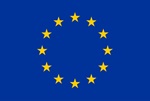
ONEPlanET is a new project aiming at providing African policy makers, research & academia, investors and citizens with the necessary tools and know-how to increase clean energy generation and sustainable use of resources while reducing inequalities and cultural/socio-economic gaps.
Officially started on 1st of November 2022, ONEPlanET Project Consortium will carry out the activities in three pilot areas:
ONEPlanET will provide open-source tools, models and materials helping them to take informed decisions, considering social, economic and environmental parameters.
In particular, the main project's goal is to co-design and test a toolkit, built upon existing WEF(water, energy, food) Nexus models and methodologies, that allows to simulate scenarios optimising existing resources with the most appropriate policies considering social, climate, economic and biophysical constraints.
In addition, a Knowledge Hub including a set of capacity building materials and knowledge exchange activities will also be developed.
The project is being coordinated by RINA and brings together 11 multidisciplinary partners from 9 different countries in Europe and Africa, with the intention to connect the knowledge, speed up the implementation of the WEF Nexus modelling approach and capitalise the Project’s outputs.
These organisations include:
The project has received funding from the European Union, grant agreement number 101084127.
